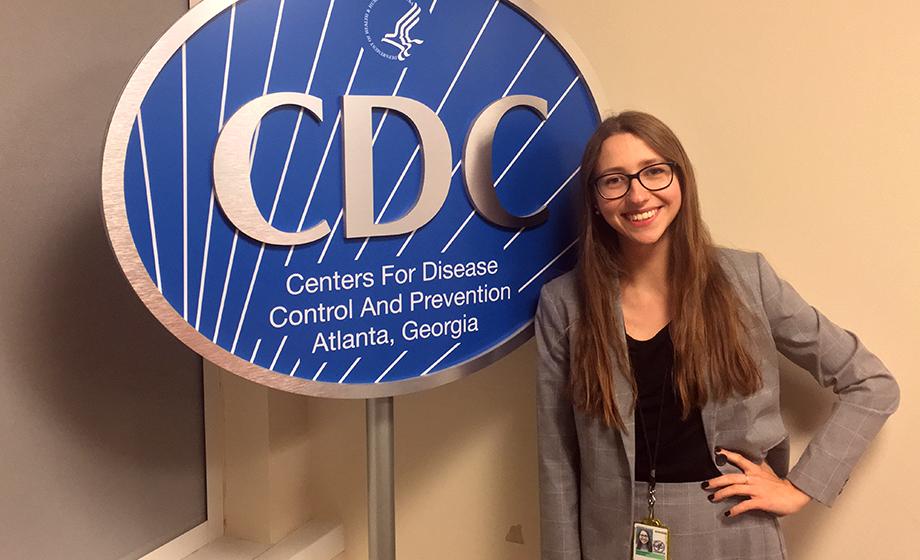
Beginning in fall 2015, Clark students could declare a new undergraduate concentration in public health, offered under the direction of David Thurlow, professor of chemistry, who at the time oversaw Clark’s pre-health advising program.
The concentration recognizes the expanding role of public health in a globalized society.
Since its introduction, enrollment in the public health concentration has risen to 27 students — approximately two-thirds of whom are biology, or biochemistry and molecular biology majors — making it by far the most popular concentration that Clark offers.
Keegan Daugherty ’19 (pictured) eagerly embraced the public health track from its inception. During her first semester at Clark she took Healthy Cities, a First-Year Intensive taught by Professor Marianne Sarkis. As part of the course, Daugherty interned with the Worcester Department of Health and Human Services, conducting research that prompted the city to adopt a needle-exchange program.
Later, Daugherty worked through the department to help local faith-based groups set up a pilot program to ensure that overflow shelters for the homeless were available during the winter months. A summer 2017 internship with the U.S. Centers for Disease Control’s Washington, D.C. office saw her conducting background literature research and attending briefings and hearings on a variety of health issues. In her time at the CDC, Daugherty was mentored by Miranda Katsoyannis ’78, a CDC senior program analyst and co-chair of the ClarkCONNECT Health community.
Daugherty is hoping to complete a master’s degree in management to gain project management skills she can apply to a career in the health care industry.
“The policy analyses that I conducted have led me to realize my love of health policy, an area of public health which I had not previously considered as a career path,” she says.
Beginning with the 2018-19 academic year, the public health concentration will be renamed Health, Science, and Society to better describe a revised curriculum designed to encompass a broader range of health-related topics. Students will have more flexibility in tailoring their course selection and will be required to take at least one course in each of four core areas: biomedical science, social determinants of health, statistics-based data analysis, and ethical considerations.
At the graduate level, in the 2017 fall semester, 16 students matriculated in a new program leading to the master of health science degree in community and global health. Created with the help of a $500,000 grant from the Leir Charitable Foundations, the degree is offered through the International Development, Community, and Environment Department.
Students choosing a community health concentration focus on healthy nutrition and active living, community mental health, law enforcement partnerships to reduce community violence, and other factors that impede people’s ability to live healthy lives in the United States.
Those selecting a global health concentration consider issues in developing countries, such as access to basic services like water and sanitation; maternal mortality, and the spread of infectious diseases, such as Zika virus.


